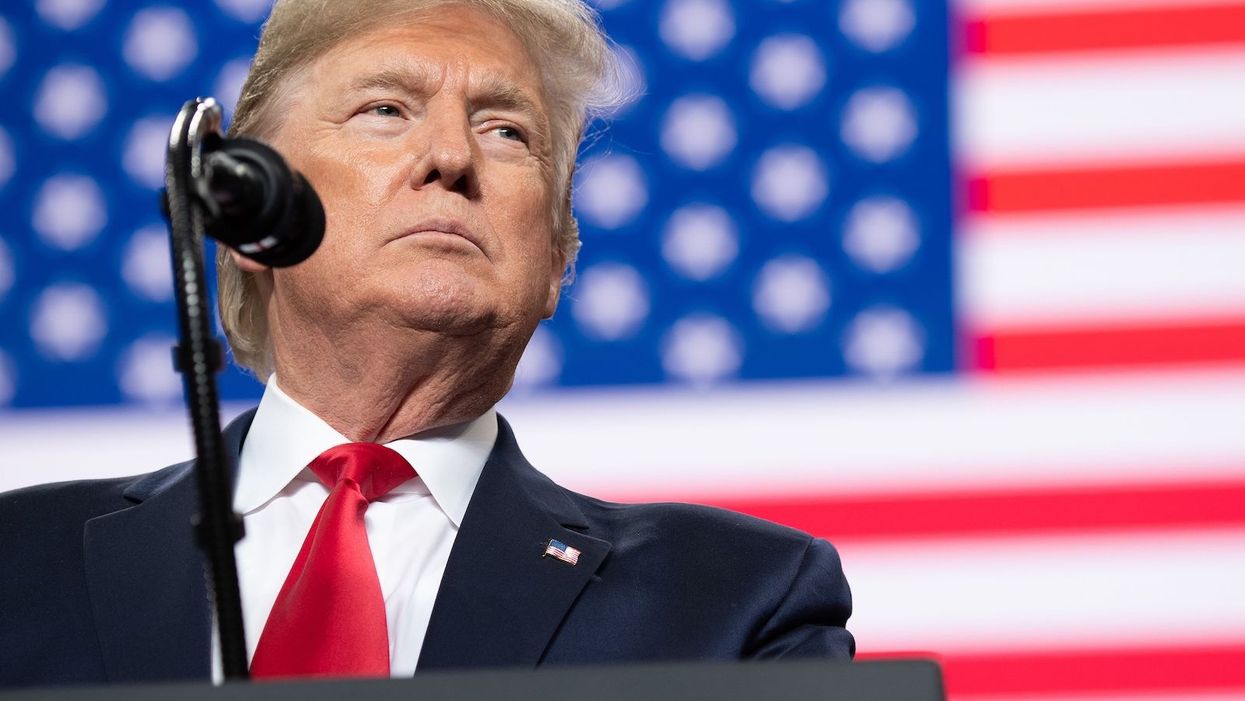
SAUL LOEB/AFP via Getty Images

It's finally over
Months of impeachment proceedings against President Donald Trump came to a long-anticipated conclusion on Wednesday afternoon as the president was acquitted in the Senate's impeachment trial.
The chamber held two separate votes on the two articles of impeachment passed by the House of Representatives. The first article alleged that Trump had abused his powers as president in asking the Ukrainian government to look into suspected corruption involving former Vice President Joe Biden and his son, Hunter Biden; the second alleged that the president unconstitutionally obstructed Congress in refusing to cooperate with the House's impeachment investigation.
One by one, senators stood at their desks and responded either "guilty" or "not guilty" to the charges leveled against the president.
The first article of impeachment failed by a vote of 52 senators voting to acquit and 48 to convict, with Sen. Mitt Romney (R-Utah) voting to convict the president along with Democrats.
The second article of impeachment failed by a vote of 53 to 47, with Romney joining his Republican colleagues on the second.
"The Senate having tried Donald John Trump, president of the United States, upon two articles of impeachment exhibited against him by the House of Representatives, and two-thirds of the senators present not having found him guilty of the charges contained therein it is, therefore, ordered and adjudged that the said Donald John Trump be, and he is hereby, acquitted of the charges in said articles," Roberts concluded after the votes.
While the prospect of the Senate ever mustering up the two-thirds majority necessary to impeach Trump was highly improbable from the outset of the trial, questions of which members might cross party lines on the vote have hung over the duration of the upper chamber's proceedings. But — out of the senators who were considered to be possible swing votes — only Romney ultimately decided to cross party lines when it came to the final vote.
"The grave question the Constitution tasks senators to answer is whether the president committed an act so extreme and egregious that it rises to the level of a high crime and misdemeanor," Romney said from the Senate floor just hours before the votes. "Yes, he did."
On Tuesday, Sen. Susan Collins (R-Maine) announced that she will vote to acquit Trump, as did potential swing vote Sen. Lisa Murkowski (R-Alaska) the day before. Retiring Sen. Lamar Alexander (R-Tenn.) has also said that he would vote to acquit the president.
On the other side of the aisle, the three likeliest crossovers among Senate Democrats — Sens. Doug Jones (Ala.), Kyrsten Sinema (Ariz.), and Joe Manchin (W.V.) — all announced Wednesday that they would vote to convict the president and remove him from office.
House Speaker Nancy Pelosi (D-Calif.) announced "an official impeachment inquiry" against President Trump on Sept. 24. After months of closed-door depositions and public hearings, the House approved the articles of impeachment on Dec. 18. After a few more weeks of Pelosi controversial holdout, the articles were finally transmitted to the Senate on Jan. 15 and the trial began the day after.